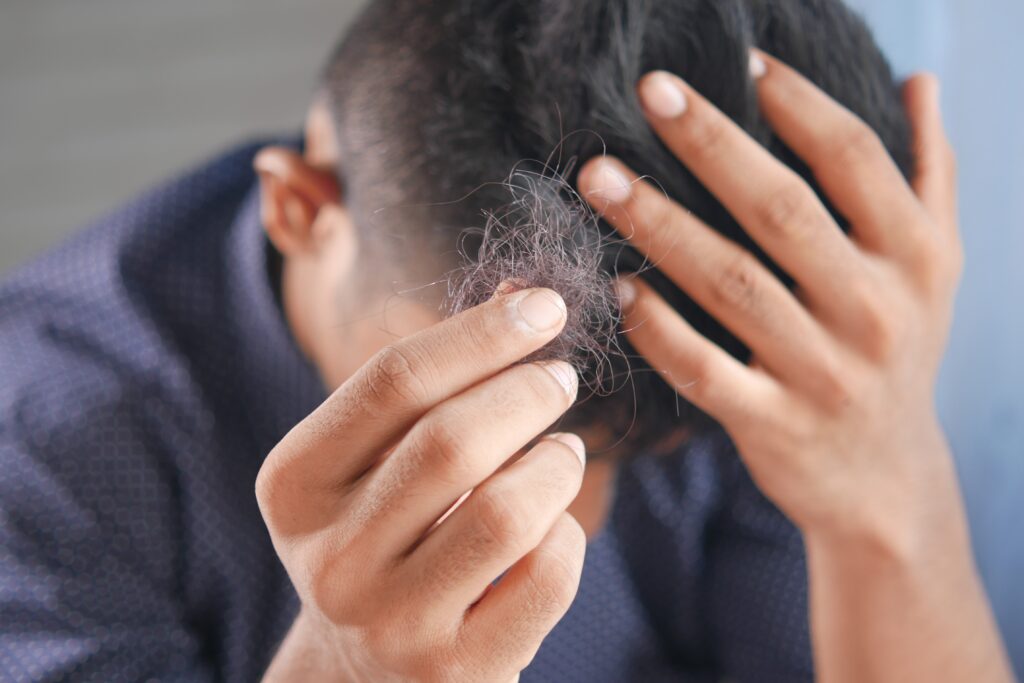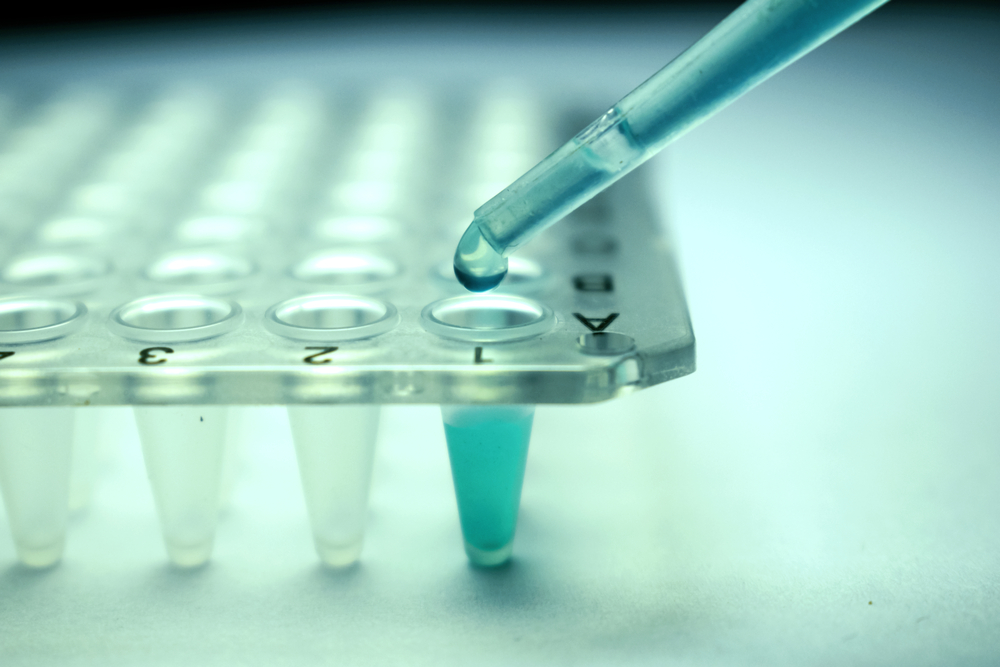Hair loss affects nearly half of all people by the age of 50 and can have a negative impact on self-esteem and overall well-being. The most common type of hair loss is Androgenetic Alopecia (AGA), which is caused by a combination of age, genetics, and hormones. Illustrative characteristics include a receding hairline (which may result in an M/U shape), thinning hair near the temples, crown, and back of the neck; and visible scalp beneath areas of normally growing hair.

Androgenetic alopecia can have a dramatic effect on an individual’s quality of life as it is manifested differently among each patient, making it difficult to diagnose and treat. As this form of alopecia progresses, the psychological manifestation of social anxiety and lower self-esteem can become overwhelming, potentially leading to depression or worry.
Studies have shown that those with androgenetic alopecia experience a decreased overall quality of life due to their hair loss, dealing with emotional issues such as lack of self-confidence, negative body image, reluctance in socializing and more severe emotional distress. Dihydrotestosterone (DHT), a hormone derived from testosterone, plays a major role in the development of AGA by shrinking hair follicle cells and stopping hair regrowth. While there are a few medications available to treat AGA, they often come with side effects and limitations.
Recently, the medical community has been exploring the potential of mesenchymal stem cells (MSCs) in regenerative medicine. MSCs, specifically adipose tissue-derived stem cells (ADSCs), are found abundantly in fat tissue and have the ability to self-renew and differentiate into different types of cells. MSCs also secrete several stimulating hormones like HGF, VEGF etc, which have been proven effective in promoting hair regrowth.
Despite promising findings, there has yet to be a randomized, placebo-controlled trial in humans exploring the efficacy and safety of adipose-derived stem cell constituent extract (ADSC-CE) in treating AGA. However, a team of researchers aimed to assess the effects and tolerability of ADSC-CE in middle-aged patients with AGA. They hypothesized that ADSC-CE would be an effective and safe treatment option for adults with AGA.
By using the treatment, the hope is that patients will experience an increase in hair regrowth without the negative side effects commonly associated with other medications. This new approach to treating hair loss could improve the quality of life of those struggling with AGA and boost their confidence. Let’s discuss the results of the clinical study, A randomized, double-blind, vehicle-controlled clinical study of hair regeneration using adipose-derived stem cell constituent extract in androgenetic alopecia.
Results of the Study
A total of 38 participants were enrolled and randomly assigned to either an intervention group or a control group. The intervention group received a solution containing a special extract derived from stem cells, while the control group received a placebo solution. Each participant was given a 130-mL bottle of the solution and instructed to apply 2 mL twice daily for 16 weeks, massaging it into the scalp gently for even absorption.
The primary efficacy variables measured were changes from baseline in total hair number and thickness, evaluated by close contact photographs taken at baseline and after 8 and 16 weeks using a standardized phototrichogram technique. To ensure accuracy in measuring changes in the same spot over time, each participant was tattooed with a dot on their scalp. Global photographs of scalps were also rated by an investigator using a 7-point scale as well as self-evaluated by participants.
To ensure the safety of the treatment, local skin reactions were monitored, and blood glucose, AST, ALT, and Cr levels were measured. Additionally, blood pressure and anthropometric measurements were evaluated at every visit. Any adverse events or allergic reactions were reported throughout the study.
Results showed that participants who received the stem cell extract experienced a 19.2% increase in hair count compared to the placebo group after 8 weeks. The increase in hair density remained significant throughout the study, with a total percentage change of 28.1% compared to 7.1% in the placebo group. Additionally, the stem cell extract improved hair thickness by 14.2% after 16 weeks.
While there were no significant improvements in investigator evaluations, participants reported no significant differences in hair regrowth at weeks 8 and 16. The treatment was well-tolerated, and there were no significant side effects or changes in blood pressure and anthropometric data.
Although the study duration was relatively short, and the enrolled number of female participants was considered small, this study is still valuable and has several strengths. It is the first clinical study with a placebo-controlled group to examine the efficacy and tolerability of ADSC-CE in hair regrowth, and it provides promising results for a new and non-invasive treatment option for hair loss. Further studies are needed to confirm the beneficial effects of ADSC-CE on hair regrowth and elucidate the mechanisms responsible for its action in humans.

